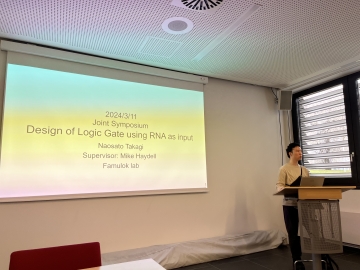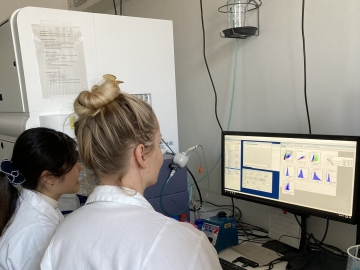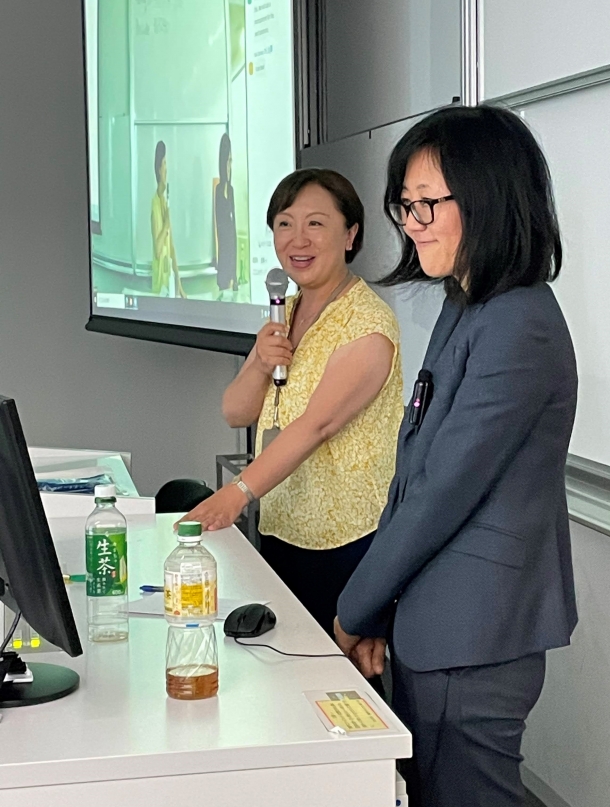
直井恵准教授を紹介する拠点メンバーで講演会主催者の高橋百合子准教授
2022年6月30日、早稲田大学スーバーグローバル大学創生支援事業実証政治経済学拠点では、昨年度に引き続き、直井 恵 准教授(カリフォルニア大学サンディエゴ校)をお迎えして講演会「How Embedded Liberalism Failed: Stimulus Resentment and the Rise of Protectionism in the United State」を開催しました。今年度、直井准教授はカリフォルニア大学と早稲田大学とのジョイントアポイントメント (JA) 教員として夏クオーター期間中に集中講義「グローバル化と国内政治の謎を解く」を開講し、国際政治経済学の主要文献精読を通して基礎知識をしっかり身に着けるだけでなく、受講生各自の研究報告も組み込んだ実践的な講義を実施されています。
本講演会では、国際政治経済学の分野を国際的に牽引する研究者である直井准教授から、ご自身の2冊目の著書(Voting with the Wallet: Consumers, Income-earners and the New Politics of Globalization Backlash)の一部を報告いただきました。講演会では、2008年のリーマンショックへの対応として米国オバマ政権下で実施された「アメリカ復興・再投資法(American Recovery Act (ARRA))」の地域的分配が、政治的分極化が進む同国で政府による景気刺激政策の恩恵を受けない有権者の憎悪(resentment)を増幅させ、その結果、特に共和党支持者から「大きな政府」への反発と貿易保護主義の台頭をもたらしたことが実証的に説明されました。
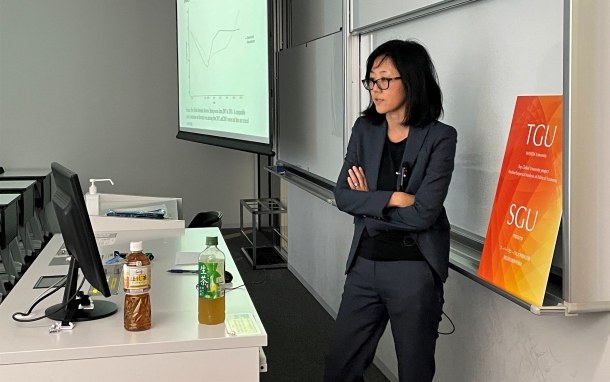
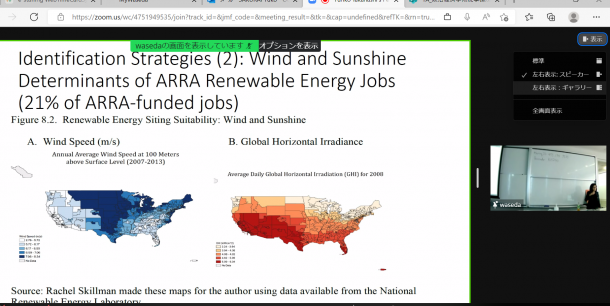
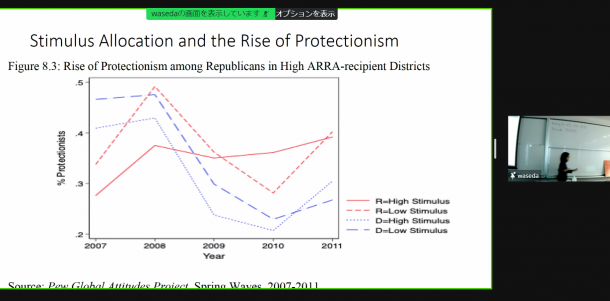
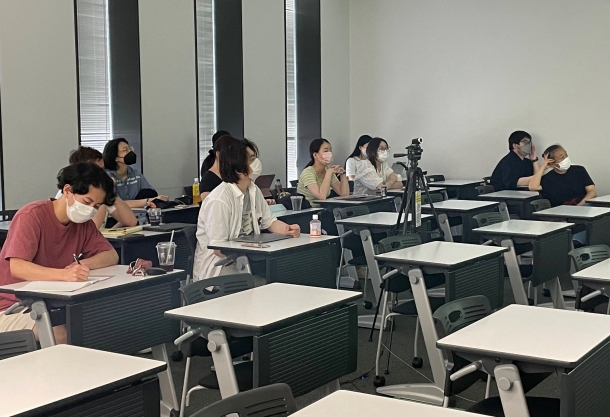
質疑応答では、戦後の米国の経済自由主義を支えたロジックである「埋め込まれた自由主義(Embedded Liberalism)」が機能しないことを厳密な因果推論を用いて検証した報告内容について、対面・オンライン併せて50名近い参加者を交えて活発な意見交換が展開されました。参加者から、因果識別の方法、景気刺激策が増長させた憎悪(resentment)の起源およびそれを緩和するための方策、憎悪と保護主義をつなぐメカニズム等について提示された質問に対して、直井准教授から明快な回答が示され、参加者は研究報告の内容を越えて、世界的に進行する貿易保護主義の要因について理解を深めることができました。
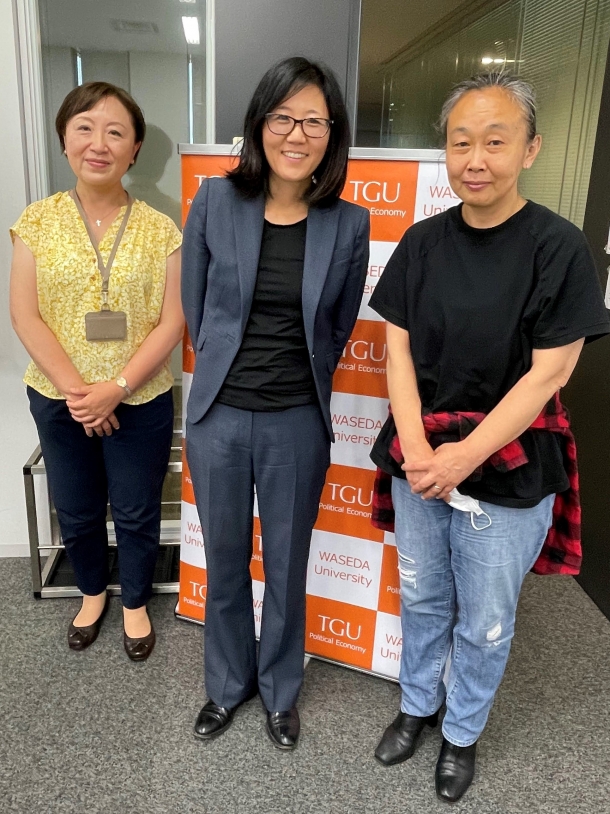
(右から)拠点リーダー野口晴子教授、直井恵准教授、高橋百合子准教授
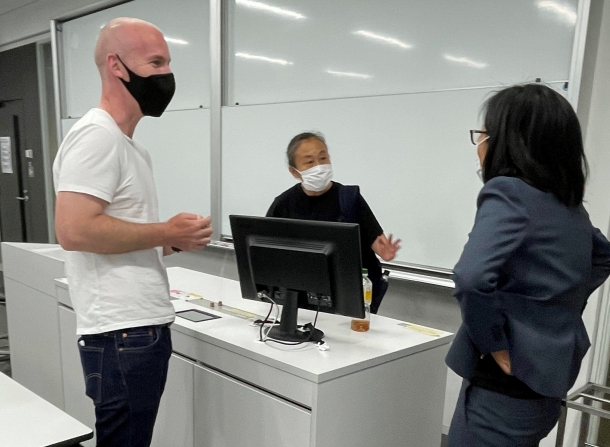
(右から)直井恵准教授、野口晴子教授、ジャック・セドン准教授
講演要旨
This study demonstrates that the rise of protectionist sentiment among Republican voters is rooted in stimulus allocation during the Great Recession. I leverage project-level, geo-referenced stimulus allocation data under the Obama administration’s American Recovery and Reinvestment Act (ARRA) merged with nationally-representative survey data before, during and after the stimulus deployment. The difference-in-differences estimates suggest that it is not scarcity of government-funded jobs that gave rise to protectionism among Republican voters. Rather, protectionism emerged in response to credit-claiming by the Obama administration that came with more generous allocation of ARRA-funded jobs. I devise two identification strategies, one that leverages variations in states’ compliance to the Federal Highway Administration’s order to install road signs for the ARRA-funded infrastructural projects and a second that utilizes the allocation of ARRA-funded jobs in the renewable energy sector based on solar and wind-generation suitability factors. The results lend support to the causal effect of stimulus allocation on the rise of protectionism during the Great Recession.
